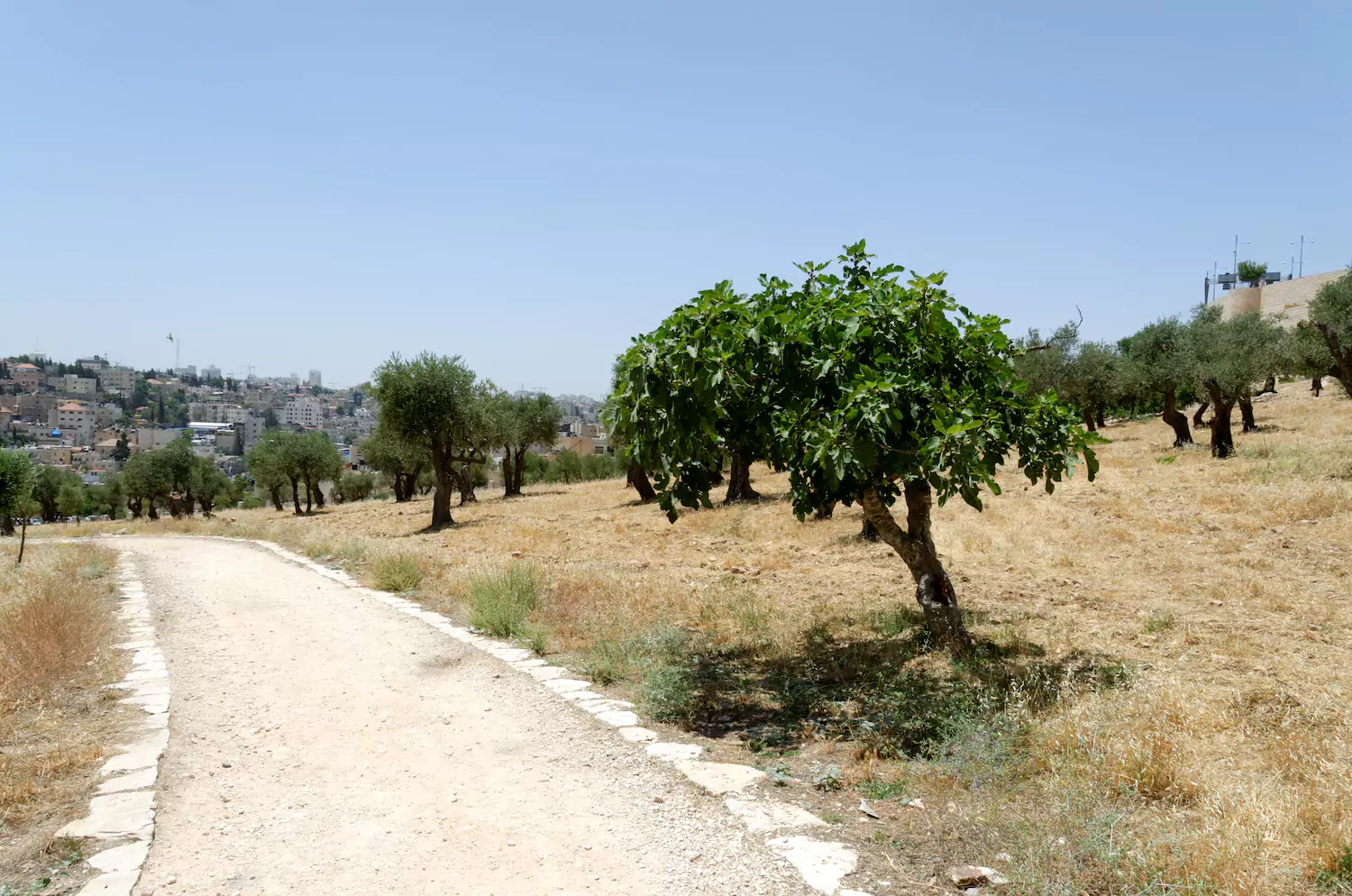2024 Passion Week Devotional, Day 2: The Cursing of the Fig Tree and the Cleansing of the Temple
Monday
The Cursing of the Fig Tree
On Monday of Passion week, Jesus and his disciples return to Jerusalem from their overnight lodging in nearby Bethany. On the way back into the city, Jesus, being hungry, spots a fig tree from a distance. The fig tree is “in leaf,” giving the impression of potentially bearing fruit. But when Jesus comes closer, he notices that the tree has only leaves, as “it was not the season for figs” (Mark 11:13). So Jesus, in the hearing of his disciples, declares that no one will ever eat the fig tree’s fruit again.
Similarly, the nation of Israel was called to bear fruit and gave the appearance of doing so when, in fact, they failed to fulfill their God-given calling to serve as a channel of blessing for all the nations. Jesus’ words, therefore, prophetically pronounce divine judgment on Israel. The meaning of this rather puzzling event would be further clarified the following day.
The Cleansing of the Temple
At this, Jesus and his followers arrive in Jerusalem. They go straight to the temple area, presumably for Jesus to teach the people there, as was his custom. Yet upon his arrival, Jesus finds a lively scene of commerce in the place intended for worship (Matt. 21:12–13; Mark 11:15–18; Luke 19:45–48). Gripped by righteous indignation and zeal for the glory of God, Jesus wreaks havoc among buyers and sellers alike, overturning both the moneychangers’ tables and the pigeon sellers’ seats. He also blocks the path of those who carry anything through the temple area. Quoting from the prophets Isaiah and Jeremiah, Jesus asks, “Is it not written, ‘My house shall be called a house of prayer for all the nations’? But you have made it a den of robbers” (Isa. 56:7; Jer. 7:11). Such rampant commercialism in the place of genuine worship of God was deeply offensive to Jesus, the holy Son of God, as it perverted the very purpose of the sanctuary where God manifested his presence among his people.
Jesus’ cleansing of the temple further draws the ire of the chief priests and scribes, who hear his words and intensify their efforts to destroy Jesus. They’re afraid of him because of his growing popular appeal. Again, when evening comes, Jesus and his disciples leave the city (Mark 11:19; Luke 21:37).
Pastoral Implications
As Christians, God calls us to be a blessing to others, especially unbelievers. We are not to hoard God’s good gifts for ourselves but serve as a channel of blessing for those who need to hear the gospel and those who are needy and poor. Israel’s failure to be a blessing and the resulting divine judgment serve as a perennial warning for all those who have received God’s blessing yet fail to pass it on to others. This speaks to the vital importance of missions and evangelism, not to mention benevolence, kindness, and love.
As in first-century Israel, consumerism, materialism, and commercialism often drive today’s churches. Leaders run churches like businesses, employing marketing methods and branding techniques. Christian authors and churches widely practice self-promotion. Admittedly, it is not always easy to know where to draw the line, but Jesus made clear that it is impossible to serve both God and Money (Matt. 6:24). Just like Jesus’ heart was full of righteous anger toward the merchants in the temple, how would he respond today?
©2024 Andreas Köstenberger. Used with permission.
Related
Passion Week Devo: Palm Sunday
Passion Week Devo, Day 3: All You Can Do is Share the Gospel
Passion Week Devo, Day 4: Open People’s Eyes to Spiritual Warfare
Passion Week Devo, Day 5: Remembering the Lord’s Supper
Passion Week Devo, Day 6: What Jesus Accomplished on the Cross
About The Author

Andreas Köstenberger
Andreas Köstenberger is host at Oak Tree Cottage, a hospitality and coaching ministry for pastors, missionaries, and Christian leaders. He is also cofounder of Biblical Foundations and theologian in residence at Fellowship Raleigh.








